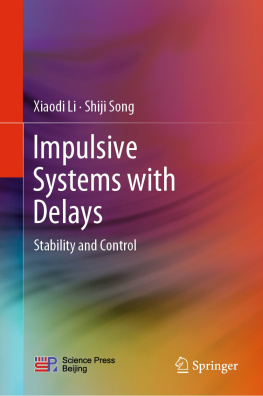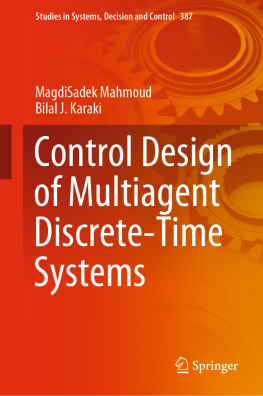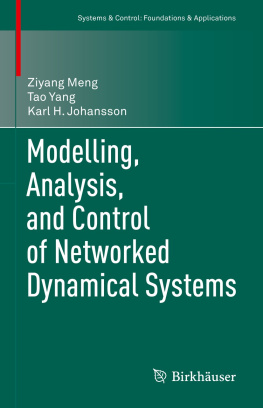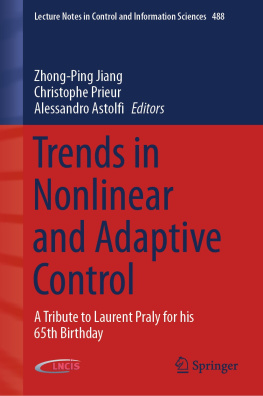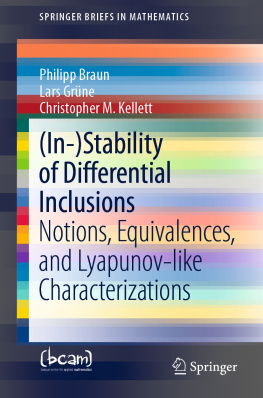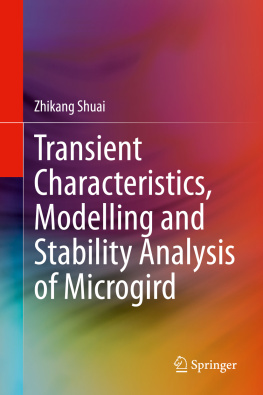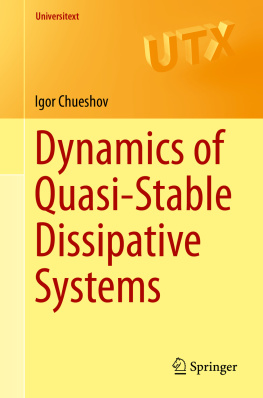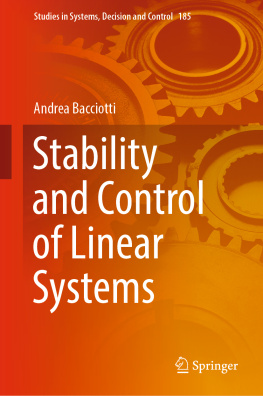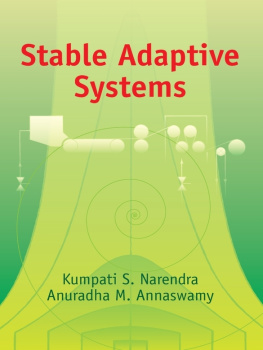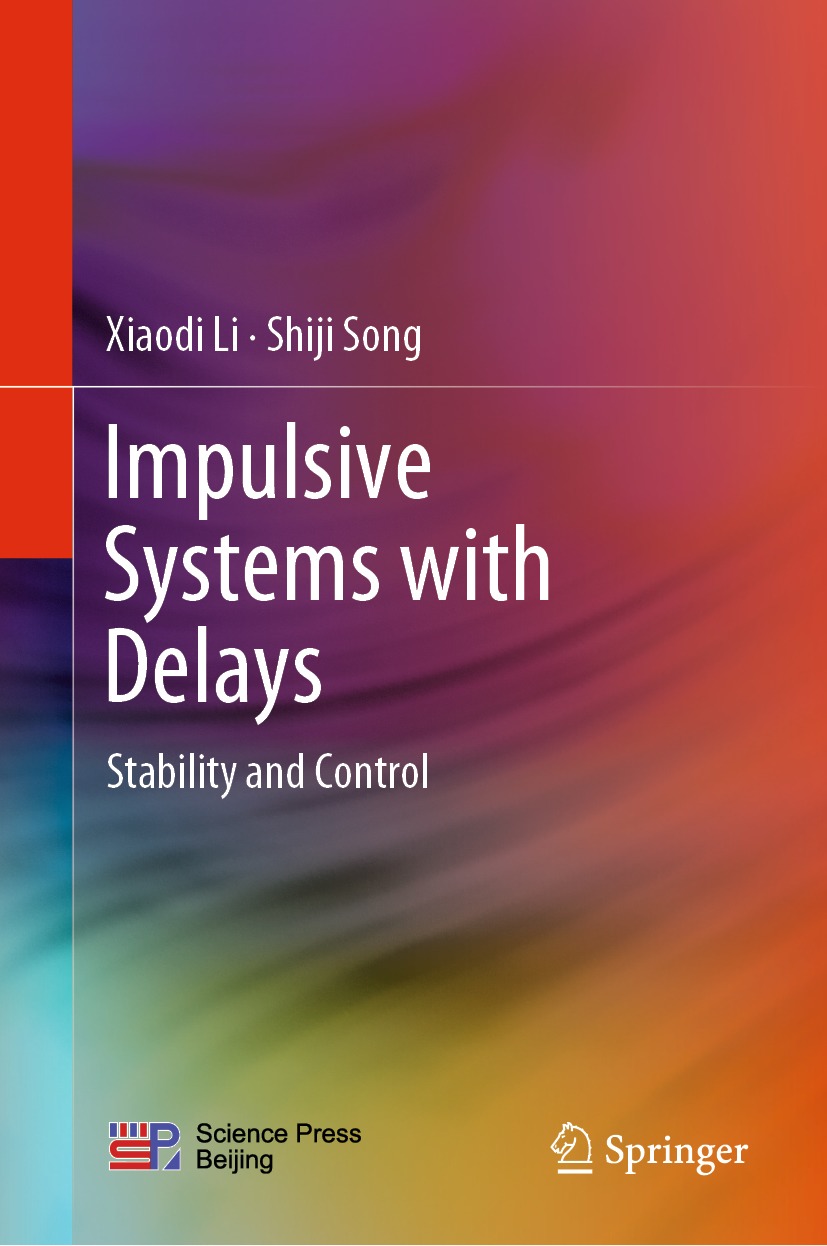Xiaodi Li and Shiji Song
Impulsive Systems with Delays
Stability and Control
1st ed. 2022

Logo of the publisher

Logo of the publisher
Xiaodi Li
School of Mathematics and Statistics, Shandong Normal University, Jinan, Shandong, PR China
Shiji Song
Department of Automation, Tsinghua University, Beijing, PR China
ISBN 978-981-16-4686-7 e-ISBN 978-981-16-4687-4
https://doi.org/10.1007/978-981-16-4687-4
Jointly published with Science Press
The print edition is not for sale in China (Mainland). Customers from China (Mainland) please order the print book from: Science Press.
Science Press 2022
This work is subject to copyright. All rights are solely and exclusively licensed by the Publisher, whether the whole or part of the material is concerned, specifically the rights of reprinting, reuse of illustrations, recitation, broadcasting, reproduction on microfilms or in any other physical way, and transmission or information storage and retrieval, electronic adaptation, computer software, or by similar or dissimilar methodology now known or hereafter developed.
The use of general descriptive names, registered names, trademarks, service marks, etc. in this publication does not imply, even in the absence of a specific statement, that such names are exempt from the relevant protective laws and regulations and therefore free for general use.
The publishers, the authors, and the editors are safe to assume that the advice and information in this book are believed to be true and accurate at the date of publication. Neither the publishers nor the authors or the editors give a warranty, express or implied, with respect to the material contained herein or for any errors or omissions that may have been made. The publishers remain neutral with regard to jurisdictional claims in published maps and institutional affiliations.
This Springer imprint is published by the registered company Springer Nature Singapore Pte Ltd.
The registered company address is: 152 Beach Road, #21-01/04 Gateway East, Singapore 189721, Singapore
To our families and research teams
Preface

Impulse phenomena arising in nature, engineering, physics, and social sciences lead to mathematical models described by impulsive systems. The impulsive actions of the models are used to capture the instantaneous change about the environment in which the system is operating and the dynamics depending on the structure and parameters of the models being studied. The theory of impulsive systems provides not only a framework that builds a bridge between the continuous systems and the discrete systems but also a theoretical support for impulsive control technique which is a powerful discontinuous control approach in control community. Since the pioneering works by Milman and Myshkis (1960), the theory of impulsive systems as well as impulsive control theory have triggered a considerably wide range of applications to blossom. Examples include the cryptographic scheme in secure communication, population control of species systems, satellite rendezvous through impulsive thrust, robot control, air traffic control, collective dynamics of complex networks, economic models, etc. Nowadays, the fundamental principles of impulsive control theory have been extended to a much wider class of problems, including the development of mathematical tools for dynamic analysis of discontinuous control systems, intelligent controller design for various plants with impulses, and practical application of impulsive systems subject to complex environments. The number of journal articles, monographs, and conference papers with respect to impulsive systems have grown rapidly and a number of novel concepts and powerful tools enriching the theory of impulsive systems as well as impulsive control theory have been explored and developed. It has been pointed out that impulsive systems have been studied from various viewpoints. One viewpoint is from the characteristics of the components of impulsive actions, namely systems with time-dependent (or fixed) impulses in which impulses occur at finite or infinite fixed instants and systems with state-dependent impulses in which impulses occur when the states of the system hit a hypersurface. Generally, the investigation on state-dependent impulses is more complicated than time-dependent impulses since it is not easy to know a priori when the states will hit the hypersurface. Another viewpoint is from the impulsive dynamics, namely the impulse as a control factor can contribute to the dynamics of the system and conversely, as a disturbance factor can destroy the dynamics. In such guide, the former class of impulses is called stabilizing impulses which is often related to impulsive control problems and the latter class is destabilizing impulses which is often related to impulsive disturbance problems. In the literature, a great number of analytical, designed, and numerical techniques have been proposed under this guide.
This monograph is dedicated to presenting a systematic description of recent progress in stability and control of impulsive systems with delays. Chapters comprehensively shed the light on the fundamental stability properties including Lyapunov stability, finite-time stability involving two different concepts, input-to-state stability and so on of impulsive delayed systems, impulsive systems with delayed impulses, and impulsive systems with event-triggered mechanism. Special attention is paid to the following three points: (i) the impulsive control and impulsive disturbance problems over different impulse sets; (ii) the positive and negative effects of time delays in impulses; (iii) the differences and advantages of event-triggered impulsive control strategies compared with time-triggered impulsive control and classical event-triggered control. The contents of this monograph are elaborately organized to offer a systematic structure of the fundamental theories, new mathematical techniques, and practical applications of impulsive systems. Some of the work appears here for the first time. For self-containedness purposes, the theoretical results in this book are reinforced with many real-world examples in the chapters. The book consists of five chapters.
Chapters introduce the backgrounds and practical applications of impulsive systems. Basic theory and mathematical tools for study of impulsive systems are provided. Additionally, an implicit relation between impulsive control and intermittent control is discussed.
Chapter is devoted to the various stability properties of impulsive delayed systems. The results are presented in the uniformity framework over different impulse sets. Moreover, finite-time stability involving two different concepts is fully studied, as well as input-to-state stability results for stabilizing impulses, destabilizing impulses, and hybrid impulses are presented.

